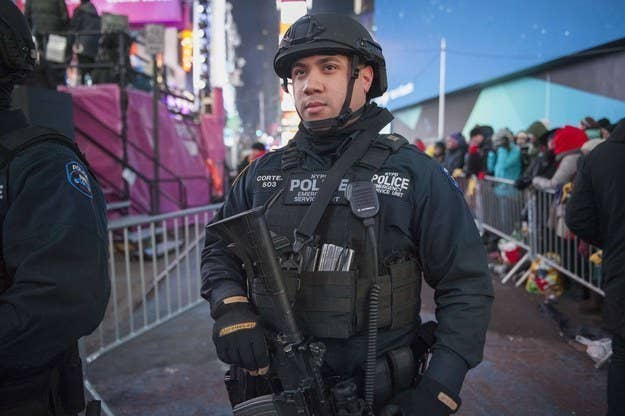
Police Commissioner Bill Bratton told The Intercept on Friday that the new unit will not carry long guns at protests, despite his early comments to the contrary.
NEW YORK CITY — The New York Police Department will create a new heavily armed unit that will focus on "disorder control and counter-terror," Police Commissioner Bill Bratton announced Thursday.
Speaking at a breakfast given by the Police Foundation at the Mandarin Hotel, Bratton said that the new unit, known as the Strategic Response Group, will consist of 600 officers equipped with "long rifles and machine guns" and will patrol locations around the city at all times, CBS reported.
"It is designed for dealing with events like our recent protests, or incidents like Mumbai or what just happened in Paris," Bratton said of the new unit, referring to recent peaceful protests demanding an end to police brutality and to terrorist attacks in India and France.
Previously, the NYPD responded to crises by deploying cops from local precincts, which Bratton said left the neighborhoods served by those precincts unattended.
The police commissioner also acknowledged that there is a "divide between the police and the public they serve" and that the "racial nature of the divide is undeniable."
Bratton added that a recent survey of more than 11,000 police officers showed "a problem with police morale." Nearly 90% of the surveyed cops said that "threat" of being investigated by the Civilian Complaint and Review Board kept them from "being proactive in the street."
He vowed to address that divide and that morale problem by ensuring that cops spend enough time making connections to the neighborhoods they serve, and by lessening the emphasis on statistics that has defined the NYPD ever since his first term as commissioner.
"For too long there's been a sense that the answer to any policing challenge was 'more' — more stops, more summonses, more arrests," Bratton said. "The problem is, this confused the means with the ends. It ignored creative ways of addressing crime and disorder that went beyond enforcement."
